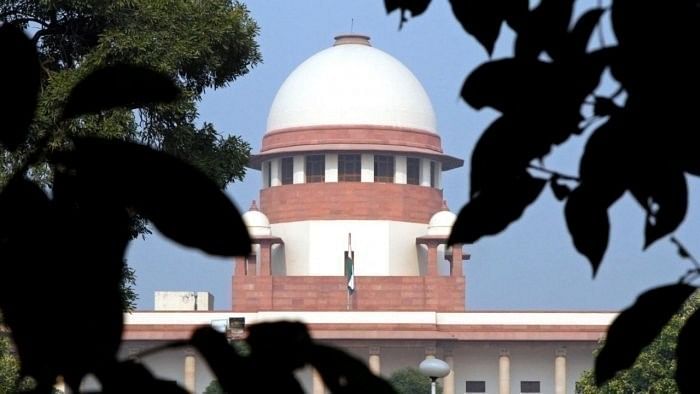
The Supreme Court of India.
Credit: PTI File Photo
New Delhi: The Supreme Court has said citizenship of India cannot be conferred on foreign citizens by doing violence to the plain language of the Citizenship Act, 1955.
A bench of Justices Abhay S Okha and Augustine George Masih said the language used in the provisions of the 1955 Act is plain and simple. Hence, it should be given ordinary and natural meaning.
"Moreover, we are dealing with a law which provides for the grant of citizenship of India to foreign nationals. There is no scope to bring equitable considerations while interpreting such a statute," the bench said.
The bench also said the court has to be circumspect in granting citizenship to foreign nationals.
In a judgment on Friday, the court dismissed a plea by Pranav Srinivasan, who was born in Singapore in 1999, to an India-born couple, who adopted citizenship of Singapore on December 19, 1998. His application for a grant of citizenship was rejected by the Ministry of Home Affairs.
Among other arguments, his counsel contended this court should exercise its extraordinary jurisdiction under Article 142 of the Constitution to allow his plea.
The bench, however, said the power is an extraordinary power which should be exercised to deal with exceptional circumstances.
"We do not think that this case warrants the exercise of power under Article 142 of the Constitution of India. This court will have to be very circumspect when it comes to the exercise of power under Article 142 for the grant of citizenship of India to a foreign national," the bench said.
The bench, however, felt Pranav can apply for Indian citizenship provided he is an ordinary resident of India for twelve months immediately preceding the date of application.
"There is a power to relax the period of twelve months vested in the central government if it is satisfied that special circumstances exist. That is the provision in subsection (1A) of Section 5 of the 1955 Act. We may note here that it is not the case made out that Pranav fulfils the criteria in clause (g) of Section 5(1) of the 1955 Act," the bench said.
Allowing the Union government's appeal against the Madras High Court's order, the bench found the view taken by the High Court was completely erroneous as the High Court held that Pranav had resumed Indian citizenship under sub-section (2) of Section 8 of the 1955 Act.
The bench said Section 8(2) will apply only if the minor child's parents had voluntarily renounced citizenship by making a declaration.
In the case, on December 19, 1998, when Pranav’s parents voluntarily acquired citizenship of Singapore, they immediately ceased to be citizens of India by operation of Section 9(1).
"Therefore, there was no occasion for Pranav’s parents to renounce their citizenship on April 20, 2012 by the mode provided under Section 8(1) as they had already ceased to be citizens of India on December 19, 1998 when they voluntarily acquired the citizenship of Singapore," the bench said.
"As Pranav’s parents ceased to be citizens of India, not voluntarily but by the operation of Section 9(1), Section 8(2) does not apply to Pranav. Therefore, Section 8(2) will not assist Pranav," the bench added.
